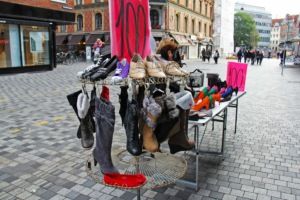News
Consumption almost back to normal post-Coronavirus Crisis
This article is more than 5 years old.
People in Denmark spent heavily on home improvement and online shopping, but cut down on travel expenses during the pandemic

Consumption is picking up after a slump during the Coronavirus Crisis lockdown (photo: Pixabay/sharonang)
People in Denmark closed their wallets as the Coronavirus Crisis shut down the country, but with society’s reopening came a return to normal for local consumption.
Card purchases and MobilePay transactions are now stabilising after falling 20 percent in March due to the pandemic, according to a senior analyst at Danske Bank.
“We are seeing a return to normal and it seems that all groups are increasing their consumption as the economy opens up again,” Louise Aggerstrøm Hansen told TV2.
Construction up but travel down
Among the patterns analysts have observed is a boom in construction spending – particularly among home improvement (DIY) customers, as many people stayed home and took the opportunity to work on projects and renovations. As a result sales increased by 60 percent during the crisis.
“We still have a high level of activity as summer is the peak season for home improvement markets,” said Mads Brejnholt Madsen, the sales director at hardware chain Stark.
Spending on travel however remains minimal because of uncertainty surrounding trips abroad.
Online shopping
Online shopping also surged, drawing an atypical market as elderly people began to take to purchasing items on the Internet.
In contrast, cash payments suffered a decline during the crisis.










































